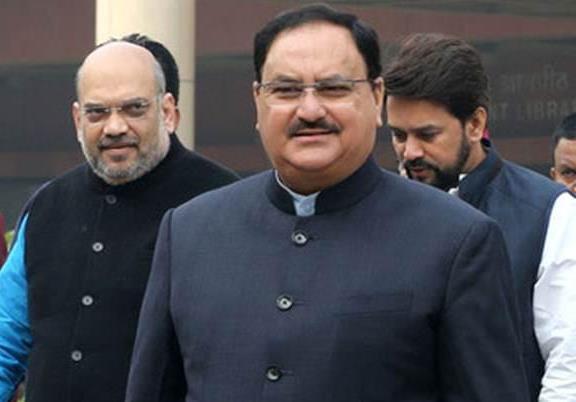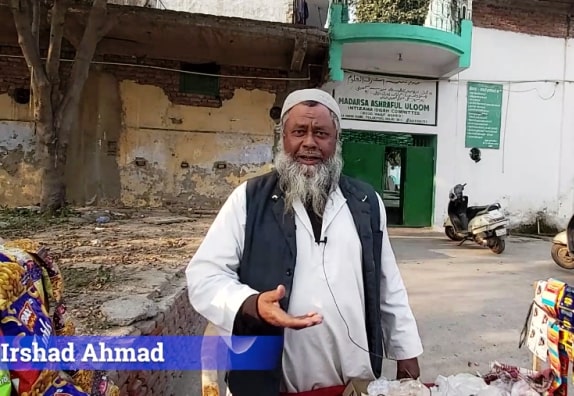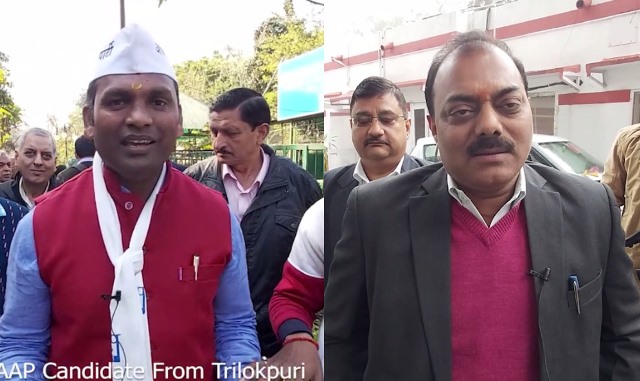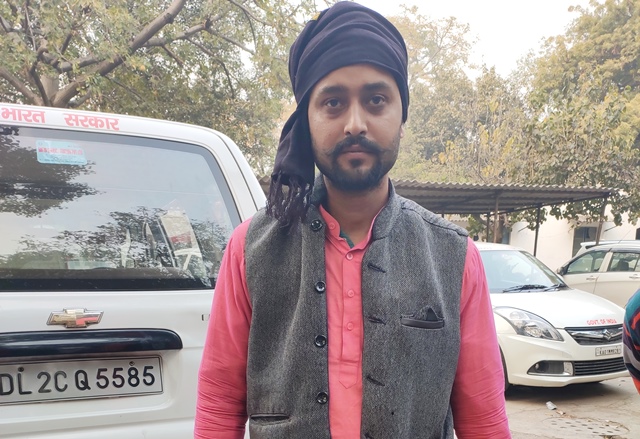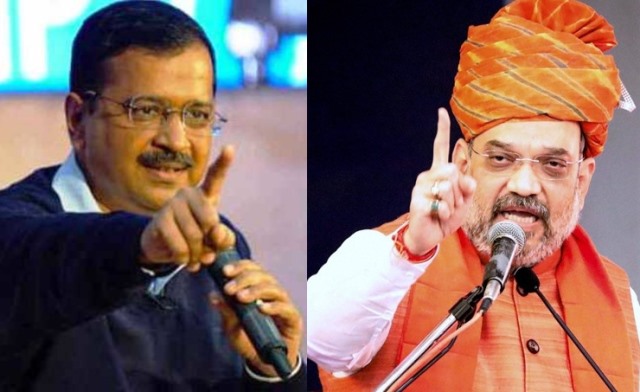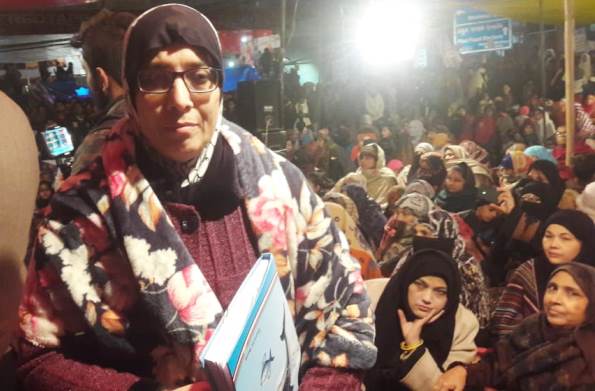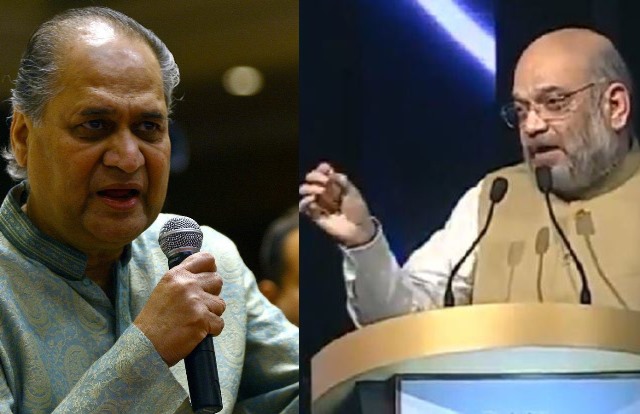The humiliating defeat suffered by the Bharatiya Janata Party in the Delhi assembly election has not proved to be an auspicious beginning for the party’s month-old president JP Nadda. Though it is true that it was Union Home Minister Amit Shah who led the party’s high-decibel campaign in Delhi, history books will record the result as BJP’s first electoral drubbing under Nadda’s stewardship.
Out of power for over two decades, the BJP was predictably desperate to take control in Delhi. But the Arvind Kejriwal-led Aam Aadmi Party proved to be a formidable opponent and the BJP fell by the wayside once again.
Well before Nadda took over as the BJP’s 11th president, it was widely acknowledged that he will not enjoy the same powers as his predecessor Amit Shah did but, nevertheless, would be called to take responsibility for the party’s poll defeats as well as organisational matters.
Nadda began his tenure with a disadvantage as it is difficult to live up to Shah’s larger-than-life image. Amit Shah, who served as BJP president for five years has easily been the most powerful party head in recent times. Known for his supreme organisational skills, Shah is chiefly responsible for the BJP’s nation-wide expansion, having built a vast network of party workers and put in place formidable election machinery. No doubt Modi’s personality, charisma and famed oratory drew in the crowds but there is no denying that Shah contributed equally to the string of electoral victories notched by the BJP over the last five years.
ALSO READ: Shah Could Be Most Decisive HM
Given that Shah has revamped the party organisation from scratch and placed his loyalists in key positions, there are serious doubts that the affable, low-key and smiling Nadda will be allowed functional autonomy. Will he be able to take independent decisions, will he constantly be looking over his shoulder, will he be allowed to appoint his own team or will he be a lame-duck party president? These are the questions doing the rounds in the BJP as there is all-round agreement that Shah will not relinquish his grip over the party organisation. This was evident in the run-up to the Delhi assembly polls as it was Shah and not Nadda who planned and led the party’s election campaign.
In fact, it is acknowledged that Nadda was chosen to head the BJP precisely because he is willing to play the second fiddle to Shah. Party leaders maintain that the new president is unlikely to make any major changes in the near future and that he will be consulting Shah before taking key decisions. For the moment, state party chiefs appointed by Shah have been re-elected, ensuring that the outgoing party president remains omnipresent.
ALSO READ: Anti-CAA Protests Erupt In Country
Though Nadda has inherited a far stronger party organisation as compared to his earlier predecessors, the new BJP president also faces a fair share of challenges. He has taken over as party chief at a time when the BJP scraped through in the Haryana assembly polls, failed to form a government in Maharashtra and was roundly defeated in Jharkhand. The party’s relations with its allies have come under strain while the ongoing protests against the new citizenship law, the National Register of Citizens and the National Population Register have blotted the BJP’s copybook.
These developments have predictably came as a rude shock to the BJP leadership and its cadres who were convinced that the party was invincible, especially after it came to power for a second consecutive term last May with a massive mandate.
WATCH: Modi Has Woken Up A Sleeping Tiger
Nadda’s first task has been to boost the morale of party workers and make them believe that the recent assembly poll results were a flash in the pan and that the BJP’s expansion plans are on course.
After Delhi, the Bihar election poses the next big challenge this year. The party’s ally, the Janata Dal (U), has upped the ante, meant primarily to mount pressure on the BJP for a larger share of seats in this year’s assembly elections. Realising that the BJP cannot afford to alienate its allies at this juncture, Amit Shah has already declared Nitish Kumar as the coalition’s chief ministerial candidate, which effectively puts the Janata Dal (U) in the driver’s seat. This has upset the BJP’s Bihar unit which has been pressing for a senior role in the state and is even demanding that the next chief minister should be from their party.
The BJP has to necessarily treat its allies with kid gloves as they have been complaining about the saffron party’s “big brother” attitude and that they are being taken for granted. While Shiv Sena has already parted company with the BJP, other alliance partners like the Lok Janshakti Party and the Shiromani Akali Dal have also questioned the BJP’s style of functioning.
The crucial West Bengal assembly election next year will also be held during Nadda’s tenure. The BJP has been working methodically on the ground in this state for the past several years now and has staked its prestige on dethroning Mamata Banerjee.
ALSO READ: West Bengal Follows AAP Model
But the Trinamool Congress chief is putting up a spirited fight, sending out a clear message to the BJP that it will not be so easy to oust her. Banerjee has declared war against the Modi government on the issues pertaining to the CAA-NRC-NPR and also activated her party cadres who have spread across the state to explain the implications of the Centre’s decision to the poor and illiterate. The BJP, on the other hand, is struggling to get across its message.
As in the case of Delhi, Shah can be expected to take charge of the Bihar and West Bengal assembly polls while Nadda will, at best, be a marginal player. Again it will be left to Shah to mollify the party’s allies as it is too sensitive and important a task to be handled by Nadda.
Like all political parties led by strong leaders, a BJP defeat will be seen as Nadda’s failure while a victory will be credited to Modi and Shah.
